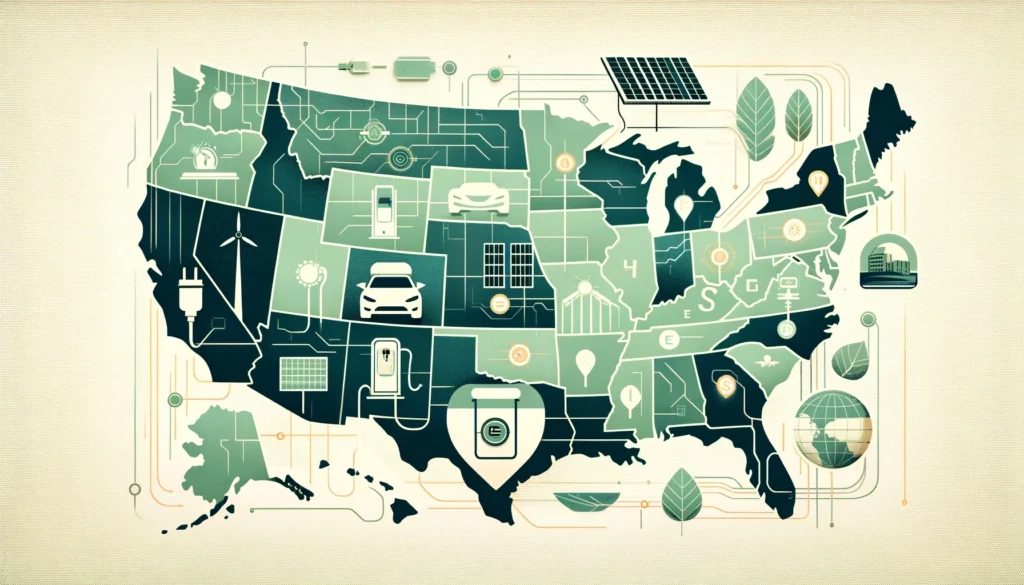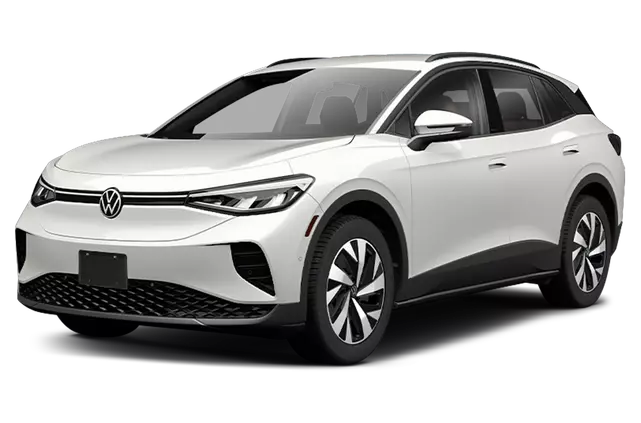The buzz around all-electric vehicles (EVs) has never been bigger. In August 2021, President Biden announced an ambitious new goal: By 2030, half of all vehicles sold in the U.S. will be electric [^1^]. With the majority of consumers indicating that they’d consider buying an EV, along with highly anticipated new electric vehicles on the way like the all-electric Hummer and the Ford F-150 Lightning electric truck, which opened orders in January 2022, the EV industry may be on the verge of a major tipping point [^2^].
But while some states have lots of electric vehicles on the roads, plenty of charging stations, and incentives to encourage EV ownership, not every corner of the country is EV-friendly. That means it’s all the more important for drivers to know which U.S. states are the best for EV owners and which are lagging behind.
How States Are Ranked
The rankings of the most EV-friendly states are based on five key metrics that contribute to the quality of electric vehicle ownership in every state:
1. Number of laws and incentives to promote EV ownership: Some states offer laws and incentives targeted at EV drivers, like exemptions allowing EVs to use HOV lanes or state-specific tax credits encouraging drivers to switch to EVs.
2. Percentage of EVs out of the total number of cars registered: A higher ratio of electric vehicles on the road suggests that there are more mechanics familiar with electric vehicles, more EV dealers for buying new vehicles, and more advocates for EV infrastructure.
3. Number of EV charging stations per square mile: The number of electric charging stations in a state matters a lot to EV drivers, and in order to make sure smaller states were fairly represented, we broke it down by each state’s size in square miles.
4. Average cost of electricity in each state: While you won’t be paying for gas in your EV, installing a charger in your garage will affect your electric bill, so states where electric bills are lower are better for EV owners.
5. Average cost to insure EVs: Look at the average cost of insurance for four of the most popular EV models in the U.S. — the Tesla Model 3, the Tesla Model Y, the Nissan Leaf, and the Chevrolet Bolt EV — to see where it costs the most, and the least, to insure an EV.
The Top 5 EV-Friendly States
Based on these metrics, here are the top five states that are the most EV-friendly:
1. California
Is it any surprise that California, the birthplace of Tesla, Inc., topped our list of best states to own an electric vehicle? While the average electricity and car insurance costs are relatively high in the Golden State, California residents have registered more than 425,000 electric vehicles, meaning nearly 3% of all cars on the road in California are EVs. And California boasts robust state laws and incentives promoting electric vehicle ownership.
2. Washington
Like its neighbor to the south, Washington scored well on our list, boosted by a low average cost of electricity and a high percentage of electric vehicles out of the total number of registered cars. There are more than 50,000 electric vehicles in Washington state, making up almost 2% of all cars on the road, so new electric vehicle owners there will be in good company.
3. Oregon
Oregon is another state with a relatively low average cost of car insurance and a high percentage of registered electric vehicles. It also scored high for laws and incentives to promote electric vehicle ownership: Low- and medium-income Oregonians can get a rebate of up to $5,000 to purchase or lease a plug-in EV.
4. Massachusetts
The Bay State may be relatively small, but with nearly 2,000 electric vehicle charging stations, it has many chargers per square mile. And since about one out of every hundred cars on the road is an EV, EV drivers in Massachusetts have lots of company — meaning there may be enough EV-friendly mechanics and dealerships offering EVs. One drawback? The average cost of electricity is higher in Massachusetts than in most other states.
5. Vermont
Even with cold winters that may cause EV batteries to drain faster, Vermont earned the fifth spot on our list of EV-friendly states. The Green Mountain State ranked well thanks to its low cost of car insurance (it costs just $1,790 a year, on average, to insure an EV in Vermont, compared to the U.S. average of $2,431) and a relatively high ratio of electric vehicles to total registered vehicles.
The Future of EV-Friendly States
Charging access is set to improve significantly over the next few years. New government incentives aim to increase the EV market share significantly by 2030. Over $5 billion has been earmarked by the federal government for improving the EV infrastructure, which should help the 30,000 Level 3 fast charging stations increase in relation to the 150,000 gas stations across the country.
As the demand for electric vehicles grows, more states will likely invest in EV-friendly policies, infrastructure, and incentives. This will further expand the options for EV owners and make it easier to own and operate an electric vehicle in the United States.


